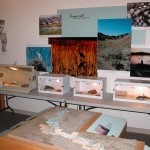Our collection of snakes that travels with us has opened opportunities for us at wildlife refuges and state parks that we might otherwise have missed. But few people, whether rangers, visitors, or fellow volunteers, have neutral feelings about these reptiles. Reactions range from fervor to horror.
Traveling with Snakes
When we relocate, our snakes ride in the basement of our fifth wheel, each in its own cage. National wildlife refuges and state parks where we have volunteered allow us space in an office or an outbuilding to house these cages where we can more easily control the snakes’ temperature requirements. Imperial National Wildlife Refuge in Arizona even requests that we display our snakes in their visitor center so guests can safely encounter and view some native wildlife.

In return for our parking space and amenities from parks and refuges, we visit schools, RV parks, and campfires with a reptile program that encourages understanding and respect for a feared and misunderstood animal. We’ve spoken with RV groups, who, like us, live or travel in regions inhabited by snakes. We’ve engaged students struggling to cope with an outdoors experience. And we’ve encountered dedicated teachers with little to work with but their creativity.
Young Outlook
In a way, our snakes have kept our outlooks and minds young and flexible by forcing us to interact with all ages. Witnessing a child’s eyes widen and glitter at their first touch of this alien being is no less exciting than assisting an elder to discover that her life-long terror was unfounded. We treasure letters from school children thanking us for “bringing your snaks to our school.” And we admire adults who reach out with one tentative finger to touch a creature that they have forever feared, only to discover that it feels soft and soothing.
Other Volunteers
Other volunteers we work with rarely approve of snakes, but have always accepted our passion and respected our animals. At refuges that display our snakes for viewing, some volunteers have even protected them by telling visitors not to tap on the glass of their cages. Other volunteers have notified us when they’ve noticed cage lights burned out or an overturned water bowl. We admire and appreciate their tolerance.
Keep Learning
Snakes command attention whether or not the audience likes them. But not only are we teaching with our snakes, we continue to learn. These animals have brought us into contact with mentors who have taught us much. We have been able to exchange information with herpetologists, biologists, rangers, researchers, teachers, and other naturalists.
A quote on the wall of a small-town Iowa cafe said it all for us. “You don’t stop learning because you grow old; you grow old because you stop learning.”
This article first appeared in Escapees Magazine, May/June, 2009, issue.
